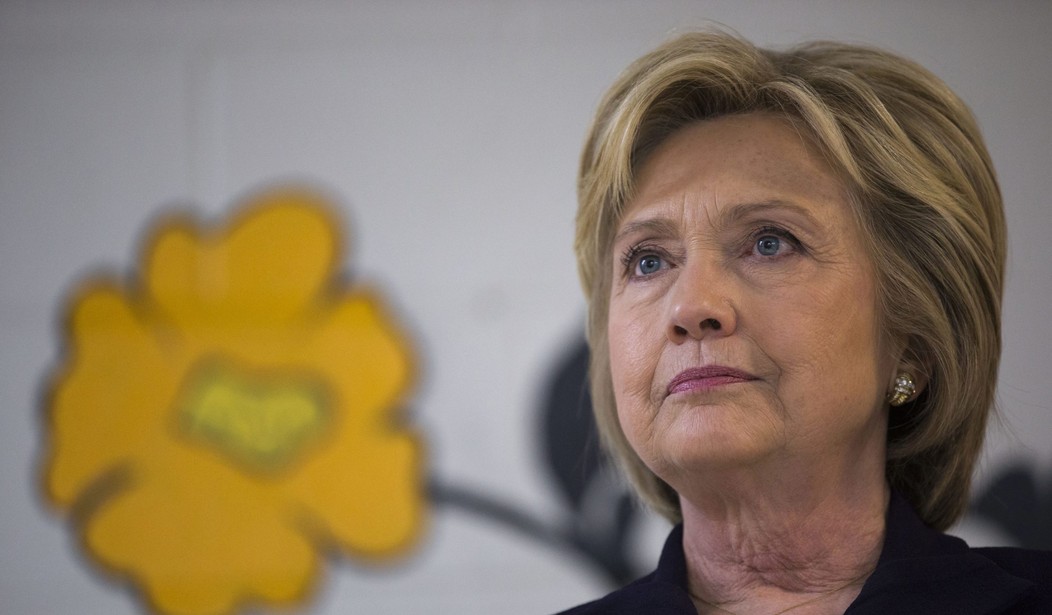A professor of law at George Washington University is expressing grave concern over the “bizarre” way in which the FBI handled the Clinton email investigation.
Respected legal scholar Jonathan Turley had previously opined that “FBI Director James Comey was within accepted lines of prosecutorial discretion in declining criminal charges,” even though he believed that charges could have been brought. Now, due to recent revelations that the Department of Justice handed out at least five immunity deals, Turley believes the matter is a “legitimate matter of congressional concern and investigation.”
Turley writes at his blog, “the news of the immunity deals (and particularly the deal given top ranking Clinton aide Cheryl Mills) was baffling and those deals seriously undermined the ability to bring criminal charges in my view.”
Now, Comey has testified before both the Senate and the House. His answers only magnified concerns over the impact and even the intent of granting immunity to those most at risk of criminal charges.
Before his testimony in the House, Comey spoke in the Senate and stated that he gave immunity to Mills because she refused to turn over her laptop — a highly dubious rationale, as I previously discussed.
First the timeline is now becoming clear and it makes the immunity deal even more bizarre given what the FBI knew [about] Colorado-based tech specialist Paul Combetta and Clinton aides Cheryl Mills and IT specialist Bryan Pagliano.
In July 2014 , then-chief of staff Cheryl Mills was told that Clinton’s emails were being sought.
On July 23, 2014 Combetta got a call from Mills on the server and emails.
On July 24, 2014, Combetta received an email from Clinton IT specialist Pagliano.
On July 24, Combetta then went online to Reddit to solicit help on stripping out “a VIP’s (VERY VIP) email address from a bunch of archived emails.” He revealed that “they don’t want the VIP’s email address exposed to anyone.”
What is incredible is that the Justice Department would give immunity to the parties on both ends of those communications — guaranteeing that a criminal prosecution is no longer a real threat.
Comey deepened those concerns with his testimony. After these conversations with Mills and Clinton aides, Combetta destroyed the evidence. Comey admits that Mills did disclose the preservation order. Combetta however mysteriously then destroys the evidence. Comey was asked what he got from the immunity deal with Combetta. He said “We learned no one directed him to do that.” However, that was simply what Combetta said after he was assured that there would not be a charge. The problem is that it hardly makes sense. Why would Combetta take it upon himself to destroy evidence that he knew was being sought by Congress and was already a matter of intense national attention. Comey could not explain why he simply accepted Combetta’s word or why that denial was worth an immunity deal.
None of that makes any logical sense if you are trying to build a criminal case. It certainly strains credulity to believe that a techie in Colorado decided to unilaterally defy the United States Congress and destroy evidence in one of the nation’s greatest scandals. The fact that this occurred immediately after calls from Clinton figures like Mills would raise considerable doubt in most investigators. Yet, the Justice Department jumped at the chance to immunize the key players in the key communications.
Turley gave voice to his growing concerns over the matter on Fox News’ The O’Reilly Factor last night.
“None of this makes sense to me,” the legal analyst told host Bill O’Reilly. “These five immunity deals are very baffling.”
Turley proceeded to make a rather apt analogy: “It’s like playing a game of tag and nobody’s it. It makes for a rather boring game when you give out immunity to people like Cheryl Mills.” He added, “I find it perplexing. I have no idea!”
Asked by O’Reilly why the FBI would give immunity to Clinton’s top aide and lawyer, Turley replied, “Frankly I was just floored when I found out they’d given immunity to Mills because she is, in fact, the most obvious target short of Clinton. She appears in all of these critical decisions at critical moments.”
O’Reilly asked Turley what he thought about Paul (BleachBit) Combetta, the guy who admitted to deleting Clinton’s emails and also got an immunity deal.
“Combetta is particularly curious,” said Turley. “You have a guy who reportedly admitted he knew that Congress had issued a subpoena for this information. He said he had a conversation with Clinton’s attorneys, and after that conversation, he destroyed the evidence Congress was looking for.”
Turley said he didn’t buy Director Comey’s explanation that they were just giving immunity deals to “low-lying fruit.”
“Cheryl Mills is not low-lying fruit,” he pointed out.
O’Reilly added that neither is Combetta if he actually destroyed evidence that Congress asked for. “That’s not a minor thing!” he exclaimed.
The professor agreed, saying, “The problem with all of this is that it shakes the credibility of the FBI. They said they wanted to build a criminal case.” He explained that you don’t do that by handing out immunity deals to everyone involved.
Turley concluded that what concerns him most about the whole mess is that now “people view our country as having two systems of justice.”
“If it is corruption, it is corruption at the highest level,” said O’Reilly, making a point former Assistant U.S. Attorney Andrew C. McCarthy would agree with. Namely, that the investigation was tanked because “Hillary couldn’t be proven guilty without proving the president guilty as well.”









Join the conversation as a VIP Member